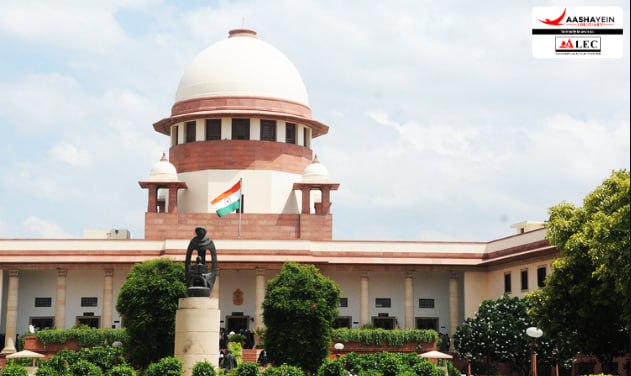The Division Bench of Justice J.B. Pardiwala and Justice R. Mahadevan of Supreme Court in the recent case of “Jami Venkata Suryaprabha & Anr. v. Tarini Prasad Nayak & Ors” gave an important ruling on Order 18 rule 1 of Code of Civil Procedure 1908 (CPC) and held that court can ask the defendant to give evidence to prove his plea first, if the proving of the plea can lead to disposal of the case. The Court noted that while the plaintiff generally has the right to present evidence first, this is not an absolute rule. If the Court determines that the defendant’s plea directly challenges the foundation of the case, it may require the defendant to present evidence first. This approach can expedite the resolution of the case by addressing critical issues upfront.
It is to be noted that Order 1 Rule 1 of the Code of Civil Procedure 1908 says that “Right to Begin- The plaintiff has the right to begin unless the defendant admits the facts alleged by the plaintiff and contents that either in point of law or on some additional facts alleged by the defendant the plaintiff is not entitled to any part of the relief which he seeks, in which case the defendant has the right to begin”
You can also read the latest judgment by visiting [Latest Judgment].
For more information, visit [Aashayein Enquiry Section]
Background of the case
The Special Leave Petition was filed against the decision of the Orissa High Court, which upheld the Civil Judge's order. The Civil Judge had dismissed an application made by the petitioners, who were acting as plaintiffs, under Order XVIII Rule 1 of the Civil Procedure Code, 1908. The fact of the case provides that the petitioners filed a suit seeking specific performance of a contract based on a sale agreement allegedly executed by the respondents (defendants) in their favor. In response, the defendants filed a written statement denying the claims in Paragraph 6 of the plaint. They argued that the allegations about their refusal to accept letters sent via ordinary post, registered post, and courier were fabricated by the plaintiffs to create a cause of action for the case.
During the trial, the petitioners filed an application under Order XVIII Rule 1 of the Civil Procedure Code, 1908. They requested that the defendants, as they were not disputing the existence of the sale agreement, should be directed to begin presenting oral evidence. However, the trial court rejected this application, and the High Court refused to intervene in the matter. Consequently, the petitioners brought the issue before the Supreme Court for further consideration.
Analysis of the court
Under Order XVIII Rule 1 of the Civil Procedure Code (CPC), the Court clarified the fundamental principle of procedural law: the burden of proof-primarily lies with the plaintiff. It is the plaintiff's duty to establish their claim with positive evidence. Only after the plaintiff provides sufficient proof does the court consider the veracity of the defendant's defense. This rule ensures that the plaintiff substantiates their case before shifting the focus to the defense. The court noted that “It is open to the plaintiff to say that although he has the right to begin, yet he may rest content with relying upon the averments made in the written statement”.
Referring to Section 102 of the Indian Evidence Act 1872, the Court highlighted that the burden of proof lies with the party that would fail if no evidence were presented by either side. If the defendant admits the plaintiff's allegations but argues that the plaintiff is not entitled to the relief sought, the defendant has the right to present evidence first.
The Court further clarified that while Order XVIII Rule 1 of the CPC 1908 grants the plaintiff the right to begin presenting evidence, it does not impose an obligation on the court to always call the plaintiff first. The court has the discretion to determine which party should lead evidence first based on the specific facts, circumstances, and issues in the case. Neither party can demand that the other must present evidence first. Considering these principles, the Court found no reason to interfere with the High Court's decision and dismissed the Special Leave Petition (SLP)

